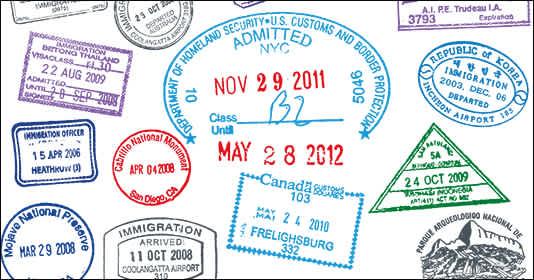- Startseite
- Publikationen
- GIGA Focus
- How Latin American States Protect Their Emigrants in Times of COVID-19
GIGA Focus Lateinamerika
Wie schützen lateinamerikanische Staaten ihre Emigranten in Zeiten von COVID-19?
Nummer 6 | 2020 | ISSN: 1862-3573

Die Fähigkeiten einiger lateinamerikanischer Staaten während der Pandemie umgehend auf die Bedürfnisse ihrer Emigranten zu reagieren, ist bemerkenswert. Das Engagement dieser Staaten geht von Kapazitäten aus, die über Jahre hinweg im Bereich der „Emigrant policies“ aufgebaut wurden. Die politische Reaktionsfähigkeit setzt wichtige Präzedenzfälle für andere Regionen.
Die Herkunftsstaaten entwerfen Politiken, die sich an ihre Emigranten (Diaspora) richten. Diese Politiken erstrecken sich über verschiedene Dimensionen des sozialen Lebens und sind nicht nur für Herkunftsstaaten, sondern auch für die Integration von Emigranten in Aufnahmestaaten wesentlich.
Selbst wenn sich die Parteien und ideologischen Orientierungen der Regierung ändern, bleiben politische Konzepte und ihre Reichweiten weitgehend unverändert. Dies gilt für eine Reihe lateinamerikanischer Staaten in verschiedenen Politikfeldern, von denen ihre Auswanderer betroffen sind.
Zu den stabilsten Politikbereichen zählen solche Strategien, die auf die Zuerkennung der vollen Staatsbürgerrechte zielen.
Langfristige Investitionen in den Aufbau von Strukturen im Ausland – etwa robuste konsularische Netzwerke und andere an Auswanderer gerichtete Dienstleistungen – haben sich für einige lateinamerikanische Staaten ausgezahlt. Diese Staaten konnten bereits in der Frühphase der COVID-19-Pandemie schnelle und zielführende Antworten zum Schutz ihrer Auswanderer liefern.
Fazit
Die Herkunftsstaaten sollten sich bemühen, über die typischen Diaspora-Engagement-Richtlinien hinauszugehen (z.B. Anreize für Überweisungen und Stimmrechte). Sie müssen Strategien für die soziale und kulturelle Öffentlichkeitsarbeit entwickeln und verschiedene Kanäle für die Teilnahme und Vertretung von Emigranten anbieten. Dennoch werden die „Emigrant Policies“ erfolglos bleiben, wenn Strukturen für eine angemessene Verwaltung im In- und Ausland fehlen. Um eine breitere Wirkung zu erzielen, müssen die Staaten weiter in die Verbesserung ihrer konsularischen Netzwerke und die Verwaltung der Diaspora-Einheiten investieren.
Lessons from the Pandemic: How to Protect Your Citizens at Home, Also (from) Your Citizens Abroad
Amid the COVID-19 pandemic, the policy responses of Latin American governments – especially in their readiness to take prompt action to contain the contagion and to provide social assistance to their vulnerable populations – are proving key to mediating its impact on the economies and societies of this most unequal world region (Blofield, Hoffmann, and Llanos 2020). Less has been written on how they can respond to the challenge of protecting their emigrants. But one of the early lessons of the COVID-19 pandemic around the world is precisely why and how the outreach of states to their nationals abroad matters.
In a moment of panic, the leaders of most nation states’ main frame of reference for a proper response was something very close to a war protocol: close your borders and call your nationals to come back to your territory. In less than a week in mid-March 2020, governments of powerful, wealthy countries such as Canada, Germany, or the United States made calls to their citizens abroad to get ready to “come back home” and sent airplanes to fetch them from different countries and regions. In doing this, political leaders were following a mandate to protect their citizens abroad, but disregarding the fact that the virus does not differentiate by nationality and that it could be carried by their very own people. Over time, quarantine and testing protocols have evolved; however, the pandemic was exacerbated initially due to the intense movement of people across the planet in the fear that borders could close and a lockdown would catch them in foreign territories.
On the opposite side, early on in the crisis, the Colombian government took a harsh, clear stance. It closed its borders to both foreigners and nationals. This tough stance is understandable from the perspective of the long-term crisis unfolding over the already-shattered health system in Venezuela, which has only worsened during the COVID-19 pandemic. Mobility across the border is hard to monitor on both sides, and many Colombians with dual nationality who still lived in Venezuela were planning to move to Colombia, while thousands of Venezuelans who had emigrated to Colombia and other Latin American countries over the past five years were looking to go back home as they faced harsher conditions of survival under lockdowns in foreign countries. Despite its extensive consular network and international presence, Brazil did not offer financial help to nationals willing to move back after the outbreak of the pandemic, telling instead potential returnees to seek support from non-governmental and international organisations such as the International Organization for Migration.
Other governments in Latin America were readier to offer a more nuanced response meanwhile. Mexico assisted its tourists and students abroad to come back home from some crisis zones, but urged its citizen residents abroad – meaning its emigrants, 98 per cent of whom concentrate in the US – not to come back. At the same time, even in the absence of clear instruction from central authorities on how to deal with its emigrant communities, Mexico’s extensive consular network was ready to help nationals abroad – both tourists and residents – with quick local-level reactions such as providing expedite, relevant information in Spanish about local measures of confinement and about access to health services in case of emergency. The readiness of these consular networks is the result of over two decades of experience with the “Health Desks” (Ventanillas de salud) that provide information on reliable and affordable access to healthcare services and sometimes even first-hand health checks (Valle, Vázquez, and Moreno 2020). This is just one among a wide range of services that, over the last two decades, have expanded well beyond the traditional protection services of consulates as set by the Vienna Convention, into the realm of social and even integration policies in the receiving country. Mexico has been a pioneer of this development, but has been quickly followed by other Latin American governments (Délano 2013). These are emigrant policies.
Emigrant Policies Are More than Voting Abroad and Remittances
Despite international organisations’ promotion of diaspora/emigrant policies as a tool of migration governance (e.g. Agunias and Newland 2012), the attention to the forms and means by which states extend their reach beyond their own borders has been reduced to a few popular methods in the politico-electoral and economic realms. In fact, the often-assumed relationship of a cynical tit-for-tat connection between voting rights offered in exchange for remittances or investments has proved to be simplistic in explaining the policies of certain states in Latin America and the Caribbean (LAC) towards their diasporas (Pedroza and Palop-García 2019). The reality of political and economic transnational engagements by emigrants with their homelands defies haphazard characterisations and easy predictions. For instance, those made in April and May that remittances to Latin America would quickly crash with the COVID-19 pandemic (France 24 2020; Parrado, Armangué, and Herrera L. 2020) have, for instance, been confirmed in the short-term for some countries, but not for all. In Mexico and Guatemala, remittances are the only economic indicator holding a positive course in the midst of a recession (Guzmán 2020; El Economista n.d.).
Among academics, the conjectures about the purpose and function of emigrant policies are more nuanced. Over the last few years, the realisation has grown that emigrant policies may serve very diverse agendas. From originally being perceived as little more than a symbolic gesture in the realm of identity-construction vis-à-vis relations between a state and its diaspora (Wise 2004), they have become instruments for the transnational mobilisation of citizens for home-grown political agendas (Hirt and Mohammad 2018) or even geopolitical manoeuvres (Gamlen 2019).
However, more immediate evidence that focuses on the content of emigrant policies rather than on deciphering their ultimate goals suggests that they are means of extending transnational governance by broadening rights, obligations, and many state services beyond borders (Pedroza, Palop-García, and Hoffmann 2016; Pedroza, Palop, and Hoffmann 2018). The wide range of policies for emigrants are an expression of the transformation of the state towards reaching its citizens even after they have left and established residence elsewhere. At that, they are remarkably flexible. Several Latin American countries, some characterised by weak statehood, have large populations living in countries with which they have acute power asymmetries, rendering them incapable of demanding better treatment for their emigrants. They have, nevertheless, quietly been expanding their reach to protect their citizens abroad by modest means.
The LAC countries have seen significant waves of emigration in the past three decades (Donato et al. 2010), and been identified as among the main innovators of emigrant policies (Délano 2013). The range of policies by which LAC states target their emigrants is, in fact, multidimensional, and includes services for education, psychological counselling, attention paid to cases of domestic violence, employment and financial advice, language and skills acquisition to better fit into the receiving state’s labour market, and even policies of integration in the receiving state that help with in the naturalisation process there. This diversity and complexity make emigrant policies both interesting and important for the LAC countries themselves, but also so as innovators setting an example for other world regions too.
Some Emigrant Policies Withstand Changing Political Winds Better than Others
An analysis conducted by a research project at the GIGA on the basis of cross-sectional data for 2014–2015 (Pedroza and Palop-García 2017), repeated recently with a further data point in 2017–2018, reveals the degree of adoption of emigrant policies across 14 LAC states (Argentina, Bolivia, Brazil, Chile, Colombia, Costa Rica, Dominican Republic, Ecuador, El Salvador, Guatemala, Mexico, Peru, Trinidad and Tobago, and Uruguay). In this analysis “emigrants” are considered those people who have left their country of origin – be it because they reside abroad or because they are in transit, with or without travel documents – and also those who belong to an emigrant community and who could claim citizenship/nationality of their home country, even if they are not in possession of it at present (Pedroza and Palop-García 2017: 168). It is, thus, a quite inclusive understanding of who belongs to a diaspora.
We call the tool on the basis of which we measure emigrant policies the Emigrant Policies Index (EMIX) (for more detailed information hereon, see Pedroza and Palop-García 2017). It has two main components. The first is the adoption of policies (POLICIES) across eight dimensions: 1) citizenship, 2) electoral rights, 3) institutional consultation of emigrants, 4) external obligations such as paying special taxes or military and/or community service, 5) economic policies (such as remittances, investments, brain gain, and return policies), 6) social policies (such as access to education, health, and social security/welfare services), 7) political competition abroad (that is, the regulation of electoral campaigns and political-party organisation beyond borders), and 8) cultural policies (such as support for families living abroad so that their children learn the language and culture of the home country). The second dimension is the adoption of measures to enable the administration of these policies (ADMINISTRATION) by creating units both at home (in the public administration) and abroad (through the consular network) made specifically in charge of putting those policies into practice. EMIX measures the adoption of policies, and not their implementation. It is a descriptive tool that, nonetheless, does measure the administrative capabilities of a state to put emigrant policies into practice. In that sense it allows us to gauge the potential of states to put their words into deeds in these domains.
Based on the EMIX results (see Figure 1 below), the degree of adoption of emigrant policies in LAC is rather stable – with only small adjustments in some countries. We observe slight decreases in certain states (e.g. Costa Rica, Mexico, and Peru) as well as marginal increases in others (e.g. Argentina and Bolivia). The exception to this trend is Brazil, where we see a noticeable decrease in the adoption of emigrant policies in 2017.

Figure 2 below illustrates the regional adoption of the policy dimensions that make up EMIX, and allow us to analyse changes across them between 2015 and 2017. The two most adopted policies are citizenship and social policies. This has remained the same for both years. On the other side of the spectrum, we observe that cultural policies, external obligations, and institutional consultation are the least-adopted policies at the regional level. Interestingly, we observe that there are two dimensions that stand out for being fairly stable over time: citizenship policies and home administration. Also, there are policies that generally show a positive evolution (suffrage electoral rights and home administration), while others show a negative tendency (social policies, external obligations, and, especially, cultural policies).
Observing the relative stability of certain dimensions of emigrant policy is important, because between 2015 and 2017 the governments of several countries included in the sample shifted in terms of their political orientation and/or undertook major reforms of their migration schemes. For instance, Ecuador approved in 2017 its new Human Mobility Law, the main goal of which was to create an all-round migration policy that would apply the same principles to every dimension of policy (e.g. refugee regulations, immigration, emigration). In 2016, Guatemala passed a Migration Code that addressed the rights of non-resident citizens and improved the administrative structures in charge of coordinating migration policy. In 2017, Brazil approved also a Migration Law, which partially recast its emigrant policies. Beyond such concrete reforms of migration frameworks, nine states in the sample underwent sometimes seismic political changes involving party alternation in their chief executives between 2015 and 2017: Argentina, Brazil, Dominican Republic, Ecuador, El Salvador, Guatemala, Mexico, Peru, and Trinidad and Tobago are clear cases in point here. That emigrant policies hold their course amid these changes is not trivial; it shows that this relatively new area of policymaking is gaining a structural place in the states of this region of the world.

Emigrant Policies’ Return on Investments for Latin America and the Caribbean; Lessons for Other Regions
Exploring the reasons why LAC states developed emigrant policies is beyond the scope of this Focus, as the possible variables involved are vast in number and relate to both the domestic and international orders. However, something quite particular about this region is the convergence (or even diffusion) along certain patterns of diaspora engagement. There is incipient evidence of how and why some of these programmes have been influenced by what are considered “best practices” in the region, particularly in the realm of service-oriented policies at the consular level (Délano 2014). Our observation of their permanence even amid changing governments suggests there is high legitimacy in this area of policymaking, and no government wants to fall behind. Reasons for their development aside, it is clear that the establishment of these policies brings dividends in troubled times: while not all states make the most of their investment in emigrant policies (as the current case of Brazil exemplifies), some LAC states can fall back into these structures to manage emergencies (like the current pandemic) in a rapid, low-cost manner.
All in all, the fact that most emigrant policies stay the course shows that this has become an area of policymaking that is not only symbolic but also concrete. The cultural dimension is perhaps the one domain where additions or cuts are easiest to make; but, not even strong political winds have shaken most other dimensions. Remarkably, the very fact that emigrant policies in the realms of citizenship (that is, those which regulate emigrants’ access to dual nationality and ensure their preservation of citizen rights in the homeland even as they reside abroad) and administration (namely, the agencies and units built to implement emigrant policies) are among the most stable shows that emigrant policies are becoming long-term investments.
Most importantly, over the last few years it has become noticeable that most LAC countries have developed emigrant policies with multiple components – and yet, that there is still significant variation. Trendsetter countries with broad emigrant policies, such as Mexico or Ecuador, have a higher degree of adoption thereof based on their establishment of practices across all subcomponents of policy identified in the EMIX framework. In LAC there are also countries with scarce interest in their diasporas. A clear case in point is Venezuela, which has not invested in emigrant policies in the past (see the EMIX 2015 results in Pedroza and Palop-García 2017) – leaving its citizens abroad unprotected and without institutions to turn to in case of need of repatriation or of emergency. This situation has been exacerbated by the outbreak of the COVID-19 pandemic, with thousands of Venezuelans abroad tried to return to their country of origin – in the face of a total absence of protection while they were overseas. Other examples of countries with a low level of adoption vis-à-vis emigrant policies are Trinidad and Tobago or Costa Rica – with many “empty” subcomponents of policy, equating to lower degrees of overall adoption. Honduras or Nicaragua, meanwhile, are examples of regional countries with diminished capacities to adequately furnish their both home and external administrations so as to offer services to protect emigrants.
New studies comparing the services offered by a wide range of European states to protect their citizens abroad in times of distress suggest that these serve also as a basis for responses offered within the context of a global pandemic (Vintila and Lafleur 2020). Europe and other regions of the world have long invested in creating institutions for diaspora management, and contributed to them growing to the status of an international norm. However, the extent to which they translate into real services within the reach of diasporas – ones backed up, furthermore, by genuinely effective administrations – is questionable. Some expert observers worry that many of them appear to merely be taking part in a trend, as they observe lacking resources (human and financial) at the disposal of diaspora institutions for implementation purposes (Gamlen 2019). Against this backdrop of deep suspicion about the true use of diaspora-engagement institutions, we observe that so far in the LAC states long-term and sustained investment in building capacities to protect citizens beyond national borders have given some governments an advantage in developing quick and multifaceted responses to the particularly global challenge that a pandemic like the current COVID-19 one is.
Fußnoten
References
Americas Society (2020), Approval Tracker: Mexico’s President AMLO, www.as-coa.org/articles/approval-tracker-mexicos-president-amlo (6 October 2020).
Blofield, Merike, Cecilia Giambruno, and Fernando Filgueira (2020), Policy Expansion in Compressed Time: Assessing the Speed, Breadth and Sufficiency of Post-COVID-19 Social Protection Measures in 10 Latin American Countries, ECLAC – Social Policy Series No. 235, September.
Bottan, Nicolás, Bridget Hoffmann, and Diego Vera-Cossio (2020), Coronavirus Survey Results Show Big Impacts, Linkages between Labor Markets and Inequality, Ideas Matter Blog, Inter-American Development Bank, 8 May.
De la O, Ana Lorena (2015), Crafting Policies to End Poverty in Latin America: The Quiet Transformation, New York: Cambridge University Press.
ECLAC (Economic Commission for Latin America and the Caribbean/Comisión Económica para América Latina y el Caribe) (2019), Social Panorama, Santiago, Chile: ECLAC/CEPAL. EFE (2020), Perú anunció ayuda económica a 6,8 millones de familias y amplió medidas de inmovilización, EFE, 23 April, www.montevideo.com.uy/Noticias/Peru-anuncio-ayuda-economica-a-6-8-millones-de-familias-y-amplio-medidas-de-inmovilizacion-uc750928 (6 October 2020).
Filgueira, Fernando, Luis Miguel Galindo, Cecilia Giambruno, and Merike Blofield (2020), América Latina ante la crisis del COVID19: vulnerabilidad socioeconómica y respuesta social, ECLAC – Social Policy Series Series (forthcoming).
Garay, Candelaria (2016), Social Policy Expansion in Latin America, New York: Cambridge University Press.
La Tercera (2020), Criteria: Aprobación de Piñera sube a 15% en agosto, 3 September, www.latercera.com/politica/noticia/criteria-aprobacion-de-pinera-sube-a-15-en-agosto-desaprobacion-baja-de-82-a-79-y-un-64-esta-totalmente-conven cido-de-votar-en-plebiscito/G7TSR35OXFCSVMOQRVSAQKTRVI/ (6 October 2020).
Lustig, Nora, Valentina Martinez Pabon, Federico Sanz, and Stephen D. Younger (2020), The Impact of COVID-19 Lockdowns and Expanded Social Assistance on Inequality, Poverty and Mobility in Argentina, Brazil, Colombia and Mexico, The CEQ Working Paper Series, Tulane University, August, http://repec.tulane.edu/RePEc/ceq/ceq92.pdf (6 October 2020).
Reuters (2020), Brazil’s Bolsonaro Approval Rating at Highest Despite Coronavirus: Poll, 14 August, www.reuters.com/article/us-brazil-politics-idUSKCN25A 1JX (6 October 2020).
UNICEF (2020), COVID-19 presiona particularmente a hogares con niños, revela encuesta ENCOVID19 Infancia, www.unicef.org/mexico/comunicados-prensa/covid-19-presiona-particularmente-hogares-con-ni%C3%B1os-revela-encuesta-encovid19 (6 October 2020).
Gesamtredaktion GIGA Focus
Redaktion GIGA Focus Lateinamerika
Lektorat GIGA Focus Lateinamerika
Regionalinstitute
Forschungsschwerpunkte
Wie man diesen Artikel zitiert
Pedroza, Luicy, und Pau Palop García (2020), Wie schützen lateinamerikanische Staaten ihre Emigranten in Zeiten von COVID-19?, GIGA Focus Lateinamerika, 6, Hamburg: German Institute for Global and Area Studies (GIGA), https://nbn-resolving.org/urn:nbn:de:0168-ssoar-70068-9
Impressum
Der GIGA Focus ist eine Open-Access-Publikation. Sie kann kostenfrei im Internet gelesen und heruntergeladen werden unter www.giga-hamburg.de/de/publikationen/giga-focus und darf gemäß den Bedingungen der Creative-Commons-Lizenz Attribution-No Derivative Works 3.0 frei vervielfältigt, verbreitet und öffentlich zugänglich gemacht werden. Dies umfasst insbesondere: korrekte Angabe der Erstveröffentlichung als GIGA Focus, keine Bearbeitung oder Kürzung.
Das German Institute for Global and Area Studies (GIGA) – Leibniz-Institut für Globale und Regionale Studien in Hamburg gibt Focus-Reihen zu Afrika, Asien, Lateinamerika, Nahost und zu globalen Fragen heraus. Der GIGA Focus wird vom GIGA redaktionell gestaltet. Die vertretenen Auffassungen stellen die der Autorinnen und Autoren und nicht unbedingt die des Instituts dar. Die Verfassenden sind für den Inhalt ihrer Beiträge verantwortlich. Irrtümer und Auslassungen bleiben vorbehalten. Das GIGA und die Autorinnen und Autoren haften nicht für Richtigkeit und Vollständigkeit oder für Konsequenzen, die sich aus der Nutzung der bereitgestellten Informationen ergeben.


















